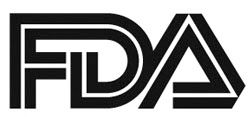FDA Grants Priority Review to Enfortumab Vedotin for Advanced Urothelial Cancer
The FDA has granted a priority review to a Biologics License Application for enfortumab vedotin for the treatment of patients with locally advanced or metastatic urothelial cancer who have previously received a platinum-containing chemotherapy in the neoadjuvant/adjuvant, locally advanced, or metastatic setting and a PD-1/PD-L1 checkpoint inhibitor.

The FDA has granted a priority review to a Biologics License Application (BLA) for enfortumab vedotin for the treatment of patients with locally advanced or metastatic urothelial cancer who have previously received a platinum-containing chemotherapy in the neoadjuvant/adjuvant, locally advanced, or metastatic setting and a PD-1/PD-L1 checkpoint inhibitor.1
The BLA is based on the findings from first cohort of patients in the pivotal phase II EV-201 trial that were presented at the 2019 ASCO Annual Meeting,2and the agency has set a target action date of March 15, 2020, for a decision on the application.
“If approved, enfortumab vedotin will likely play an important role in the treatment of advanced urothelial cancer, and we look forward to working with the FDA as the review process advances,” Andrew Krivoshik, MD, PhD, senior vice president and oncology therapeutic area head at Astellas, one of the companies co-developing the antibodydrug conjugate, said in a press release.
Enfortumab vedotin is an investigational antibodydrug conjugate that was designed to target Nectin-4, which is highly expressed in urothelial carcinomas.
In the single-arm, 2-cohort EV-201 study, patients were stratified into 1 of 2 groups, including one for those who had previously been treated with platinum chemotherapy and a PD-1/PD-L1 inhibitor and the second group included patients that did not receive platinum chemotherapy and were ineligible for cisplatin. Only results from the first cohort of patients were presented at the ASCO meeting and contributed to the BLA.
The cohort included 128 patients who were administered 1.25 mg/kg enfortumab vedotin intravenously on days 1, 8, and 15 of each 28-day cycle. Seventy percent of the patients were male and the median age of patients in the cohort was 69 years (range, 40-84). Patients had received a median of 3 prior lines of systemic therapy (range, 1-6) in the locally advanced or metastatic setting. PD-L1 expression levels were calculated by combined positive score (CPS) and were below 10 in 65% of patients.
Objective response rate (ORR) per RECIST 1.1 criteria by blinded independent review, the primary endpoint of the study, was 44% (95% CI, 35.1%-53.2%), consisting of a 12% complete response rate and a 32% partial response rate. An additional 28% of patients had stable disease.
Responses were observed across all subgroups, irrespective of response to prior PD-1/L1 inhibitors or presence of liver metastases (ORR, 38%; 95% CI, 24.7%-52.8%).
The median progression-free survival was 5.8 months (95% CI, 4.9-7.5) and the median overall survival was 11.7 months (95% CI, 9.1-not reached). The median time to response was 1.8 months (range, 1.2-9.2) and the median duration of response was 7.6 months (range, 0.95-11.30+). Forty-four percent of responses were ongoing at the time of data cutoff.
Frequently seen treatment-related adverse events (TRAEs) of any grade consisted of fatigue in 50%, alopecia in 49%, and decreased appetite in 44%. TRAEs of special interest included rash (grade ≥3, 12%), peripheral neuropathy (grade ≥3, 3%), and hyperglycemia (grade ≥3, 6%).
Treatment discontinuation due to TRAEs were reported for 12% of patients, mostly due peripheral neuropathy. One death was reported on the trial from interstitial lung disease, the death could have been treatment related, but according to the investigator the event was confounded by a suspected pulmonary infection.
Enrollment in the second cohort of EV-201 is ongoing and the agent is also being investigated in the phase III EV-301 trial, which is looking at enfortumab vedotin compared with standard-of-care post-platinum and a PD-1/L1 inhibitor (NCT03474107), as well as the EV-103 study, which will investigate the agent in combination with pembrolizumab (Keytruda) and/or chemotherapy (NCT03288545).
“The FDA’s filing of the application for enfortumab vedotin and granting of priority review is a significant milestone toward offering a new treatment to patients with advanced urothelial cancer who have a clear unmet need,” said Roger Dansey, MD, chief medical officer at Seattle Genetics, in a statement.
The FDA also previously granted the agent a breakthrough therapy designation for the treatment of patients with locally advanced or metastatic urothelial cancer who have disease progression during or after checkpoint inhibitor therapy.
References:
- Seattle Genetics and Astellas Announce U.S. FDA Grants Priority Review for Enfortumab Vedotin Biologics License Application in Locally Advanced or Metastatic Urothelial Cancer [press release]. Bothell, Washington & Tokyo: Seattle Genetics Inc. & Astellas Pharma Inc.; September 16, 2019. https://bwnews.pr/2kNhJPI. Accessed September 16, 2019.
- Petrylak DP, Balar AV, O'Donnell PH, et al. EV-201: Results of enfortumab vedotin monotherapy for locally advanced or metastatic urothelial cancer previously treated with platinum and immune checkpoint inhibitors. Presented at: 2019 ASCO Annual Meeting; May 31-June 4, 2019; Chicago, IL. Abstract LBA4505.
FDA Accepts IND for UGN-103 in Low-Grade Intermediate-Risk NMIBC
April 15th 2024An investigational new drug application for UGN-103 was accepted by the FDA. A phase 3 study to assess the safety and efficacy of the agent in low-grade intermediate-risk non-muscle invasive bladder cancer is anticipated.
Read More
Study Shows Desire for Bladder-Sparing Treatments in High-Risk NMIBC
April 2nd 2024In an interview with Targeted Oncology, Joseph M. Jacob, MD, discussed how bladder preservation is the top reason for refusal of radical cystectomy in the TAR-200 monotherapy cohort of the SunRISe-1 study.
Read More